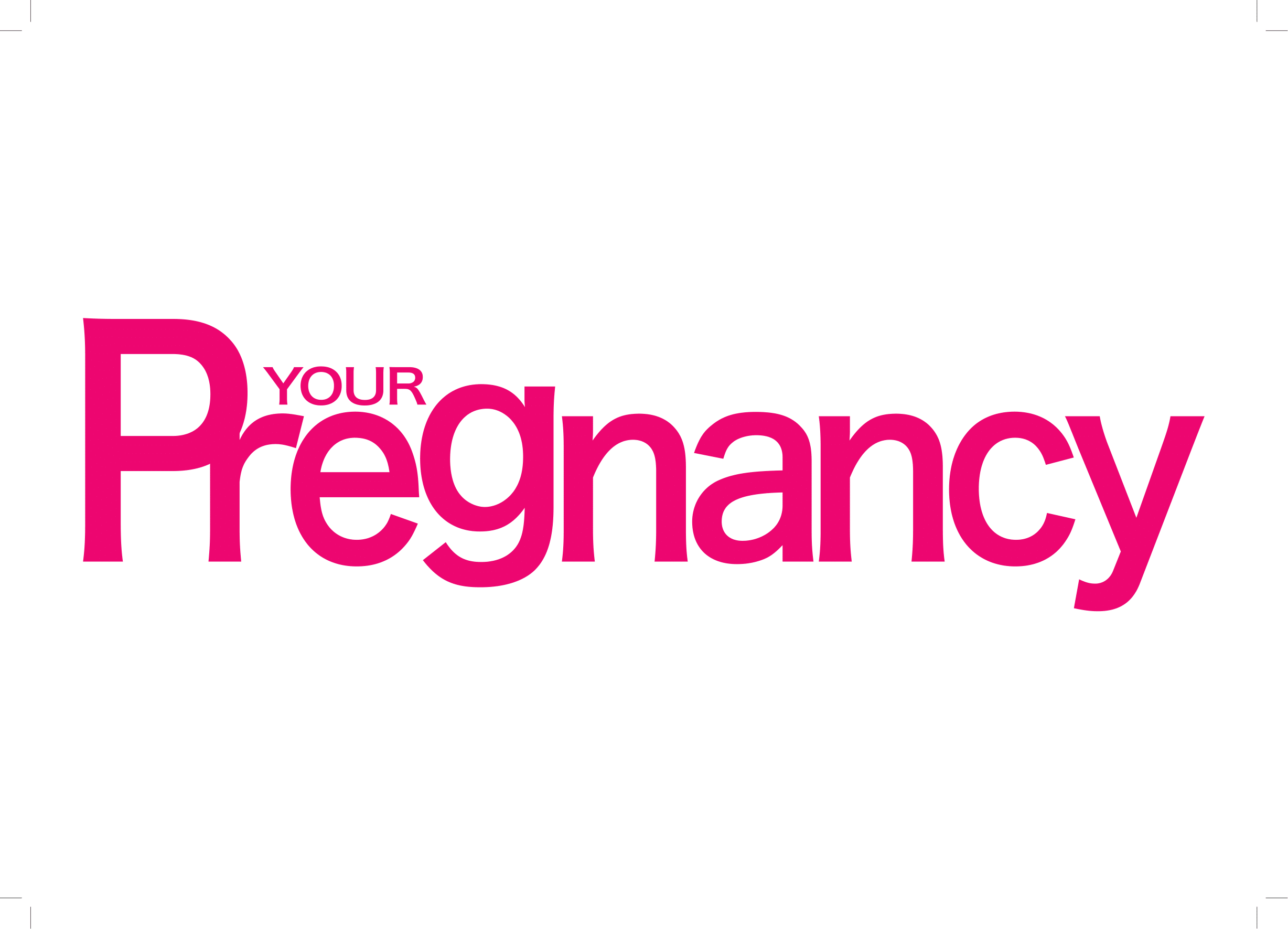
This article first appeared in the October/November 2016 issue of Your Pregnancy magazine.
Isn’t life just becoming unbearably expensive? Recession and rampant unemployment are ugly realities, and you’re about to welcome a houseguest into your home – one you have to feed and clothe for the next 18 years (at least)! How does anyone ever afford a baby?
The answer is simply that there are as many options for baby food, clothing and schooling as there are people in the world. If you do it carefully, you can cut your cloth to suit your circumstances, especially by being clever about making your rand stretch. Here’s how to get started.
1. Lose your debt
The very best thing you can do right before Someone Expensive joins your family, and in fact at any time in your life, is minimise the fallout from previous financial faux pas. In short, this means getting out of debt.
“If you already have debt, particularly short-term debt, it’s time to make drastic sacrifices. Spend all your surplus funds paying off your most expensive debts first,” says Andries Nel, wealth manager and tax specialist at Kruger International Private Wealth Management.
“One simple principle will ensure that you don’t run into a situation where your credit cards, personal loans and other expensive debt goes through the roof,” he adds: “Spend less than you earn. Only buy when you have the money in the bank – don’t use the bonus you’re expecting at the end of the year.”
Andries says trying to keep up with the Joneses can end in unmanageable debt. “The secret to avoiding that scenario is to ask yourself whether you really need or can’t live without something. Rather take the pain and go without something now than end up in debt counselling, which can make your pain last much longer.”
2. Plan for unemployment while on maternity leave
Ideally you also want to get to a place where you have 3-6 months’ salary in your current account in case of emergencies. In your case, you need to plan for a period of unemployment if you are not taking (paid) maternity leave. Inform the UIF of your pregnancy and arrange for pay-outs (which may not match your salary and may only be paid some months after the birth of your baby).
Meeting with a financial adviser might be the best money you’ve recently thrown after bad: they can teach you how best to tackle your debt and budget for the future. Fair warning: Cutting up your store cards will be part of this experience… Once you have completed this painful but rewarding exercise, you can now start to put aside amounts to look after all your short-, medium-, and long-term needs, including the baby.
But be wary of keeping a separate budget for the baby. Warns Andries, “Remember, he or she will form a part of your life for at least the next 18 years. Become accustomed to having them as part of the total budget. Don’t try to open a savings account for the baby when you are actually financing the expenditure through your credit card (debt again). Yes, you will save the R500 per month at 10% interest but your credit card interest at 20% will negate that.”
3. Less is more
If you buy even only half of what was on your original “must-have” baby list, you’ll still end up with heaps of stuff you’ve used only once by the time your baby’s a year old. We promise. We all make this mistake, but it’s just not worth getting into financial dire straits about. So here are some things you can safely ditch:
- Crib bumpers – they’re no longer considered safe anyway. Ditto for car seat decorations.
- Pillows. A plain new mattress, covered, is all your baby needs to sleep, once she’s in pyjamas and swaddled or wrapped in a blanket.
- Bottles if you intend on breastfeeding. One “emergency” bottle will be enough, and can be supplemented later if necessary.
- Sterilisers – boiling items to sterilise them is a safe alternative.
- Grooming kits like hair brushes, nail clippers, etc are cute and nice to have, but most parents have learnt the hard way that newborn hair falls out and does not strictly need brushing, and that delicate baby nails are most safely snipped off by a parent’s teeth…
- Expensive liquid baby bath soaps and bubble baths, as for the first few months a simple bar of baby soap or tub of aqueous cream will suffice.
- Shoes. Babies don’t walk.
- Motorised mobiles, activity mats, baby bouncers and so on are nice to haves, but by no means a necessity. Your home and presence are enough to provide all the stimulation a young baby needs.
- Re-evaluate even big-ticket items. “Everyone has a pram, cot and compactum,” you reckon, but is this really true? Finnish babies sleep in government-donated cardboard boxes! A desk, chest of drawers or table can easily convert into a compactum with the addition of some foam and plastic covering. And babywearing (whether with a towel in the traditional way, or by buying chi-chi baby wraps and carriers) are a super-convenient alternative to pushing baby in a pram.
4. But don’t ditch…
The car seat: You absolutely need one because your baby is proven to be significantly safer in a rear-facing car seat in the event of an accident than anywhere else. If you don’t have a car, consider buying a lightweight, portable car seat that you can use in whichever car you’re travelling.
If your baby absolutely needs to travel in a taxi, rather pay for two seats and use the car seat than holding baby on your lap. It’s more expensive in the short term, but the rewards are lifelong.
Car seats are expensive, so look into getting one free or second hand if you can’t afford a new one (but you must have one by law). Wheel Well distributes donated car seats – check out wheelwell.co.za.
- Also see: How to pack a hospital bag (for real)
5. Wait for the baby shower
Parents, other relatives and friends sometimes like to club together for big items, or to start a nappy stockpile for you (yay!). You won’t know what you are going to get until after the shower so exercise patience, mama-to-be, and hit the shops after the shower.
Don’t be shy to draw up a wish list, or to hit up friends for items they may no longer be using, such as cots, toys, mobiles, activity mats, bath accessories, and so on.
They may not even know you are looking for the item in question. Buy secondhand (gumtree.co.za) and scour stores and online retailers for specials. Now that you are reserving a monthly sum for baby items, you can plan your purchases better.
6. The emperor’s new clothes
It feels like a lifetime but it’s really only for a final few weeks that you have to wear the same pair of pants or skirt. There is really no point in investing in expensive new maternity clothes at this stage if money’s as tight as your button-down shirts.
7. Nourishment
If you can, breastfeed your baby. It’s absolutely free and the best food you can possibly make him. Formula on the other hand is crazy expensive.
Remember that the WHO guideline is to breastfeed exclusively for 6 months, and with food to 2 years and beyond. If you are struggling with breastfeeding, invest in good breastfeeding advice from a nurse or lactation consultant before throwing in the towel.
After four months, you may want to start introducing solid foods, depending on your baby’s interest and needs. You don’t need to buy jars of puréed baby food when one ripe banana can be mashed and frozen in ice trays, turning into three or four baby meals!
When you’re on a tight budget, confine yourself to only one monthly “big” shop. Buy fruit and veg in bulk or on special and cook meals to freeze.
- Also see: 5 apps for new parents
8. Once baby is here…
… and since you’re already in the habit of saving a regular monthly sum, make sure the monthly surplus that you invest in part accounts for your children’s educational needs, as time will creep up on you faster than you can imagine. However, do not neglect your own financial needs and retirement objectives, as both you and your children will end up paying for it if you do.
How are you budgeting to prepare for baby? Tell us in the comment section below or send your tips and stories to chatback@parent24.com. We may publish your letters.
Do you have a question about your pregnancy health that you'd like an expert's feedback on? Email to problems@yourpregnancy.co.za and we may publish your question along with advice from a specialist. Please note that we cannot supply personalised advice.




 Publications
Publications
 Partners
Partners














